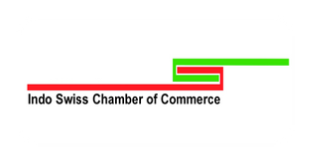SLX has launched Live Master Classes with deeper insights into sustainability, by industry experts. Enroll for the 45-minute session for free!

The certification course offers input from various experts from the industry. The course is validated globally with an industry-validated skills framework.

Do you want your job to be value-oriented? Or would you like your present job to shift focus towards meaning and value? Take this certification course and build what you are looking for!

The certification course will diversify your skillset. This will help you find better work opportunities in better companies!
The sessions will be delivered by world class faculty members with vast experience in the field of education and sustainability.
Our Certifications will help you integrate sustainable development processes and practices with ease into your deliverables & activities.
Our certification courses have comprehensive reference material on Sustainability, ESG, and many related topics.




“Financial industry is as culpable as the fossil fuel industry in creating the climate emergency”. Strong words from Jennifer Morgan (international executive director of Greenpeace) during World Economic Forum’s conference in Davos yesterday. Should we be blaming the financial industry for climate change? Let’s find out.
In a recent report published by Greenpeace, “It’s the finance sector, stupid”, revealed two crucial facts. First, majority of the financial industries that travel to Davos and UN’s climate conferences actively invest in the fossil fuel industry. These companies till date have invested $1.4 trillion since the signing of the Paris climate accord in 2015. This is not a great sign for the financial sector. Especially when they are simultaneously looking to promote net zero carbon goals. You cannot invest in the biggest perpetrator for carbon emissions and talk about solving the climate crisis. That is textbook greenwashing. Second, many of these companies in the financial industry are providing insurance for coal coverage. This is enabling the fossil fuel industry to rapidly expand globally.

Lord Nicholas Stern, a British economist believes that the reason the financial sector is investing in fossil fuel is because they are only thinking short-term. The financial sector seems to have pulled away and disconnected itself from real economy. Many people are slowly waking up to the realization that the economy we have right now is flawed and requires a fundamental re-think. This perfectly captured in Klaus Schwab’s quote (Founder and Executive Chairman of the World Economic Forum) saying
“Adherence to the current economic system represents a betrayal of future generations, owing to its environmentally unsustainability”.
We are once again at the precipice of reforming the way the global economy works. The Bretton Woods agreement was signed by world leaders to ensure world wars would never again occur. The system may have worked for the 20th century and resulted in unprecedented economic growth. However, this growth has led to destruction of the environment by giving central power to the financial sector. Similar to how world nations came together to sign the Bretton Woods agreement, the world requires all countries to come together now. We need a new agreement that fundamentally changes how our economy works.
Yes, the financial sector may have fueled climate change, but that does not mean they cannot change. So, how can the financial sector be proactive about this? First, the sector needs to start shifting subsidies away from the fossil fuel industry and invest it in long-term renewable energy. Second, advocate government to have stricter climate regulations. Ask the government to act based on scientific facts. Finally, start preparing a transitional framework. One that will move way from our current outdated and one-dimensional economic model to a new and holistic sustainability model.
Swiss Learning Exchange is in Davos this week with our mic and camera. As for all the latest blogs on Davos 2020, you can visit our online platform SDG Plus.